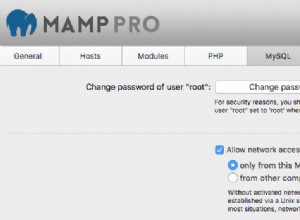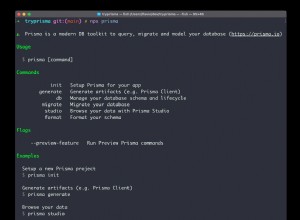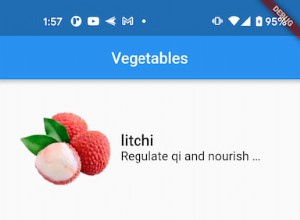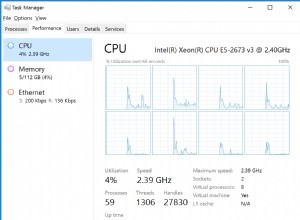Możesz to osiągnąć za pomocą niektórych funkcji json dostępne w postgresql.
W poniższym przykładzie z działającym db-fiddle zawarłem dodatkowe dane testowe.
Schemat (PostgreSQL v13)
CREATE TABLE my_table (
"dest" json
);
INSERT INTO my_table
("dest")
VALUES
('{"DestinationLists": [{"name": "TV3/TVNZ/CHOICE", "destinations": [183, 165]}]}'),
('{"DestinationLists": [{"name": "SecondTest", "destinations": [103, 105]},{"name": "ThirdTest", "destinations": [3, 5]}]}');
Zapytanie nr 1
WITH expanded_data AS (
SELECT
dest::text,
json_build_object(
'name',
dl->>'name',
'destinations',
json_agg(
json_build_object('Id',dld::text::int)
)
) as dest_list_item
FROM
my_table,
json_array_elements(dest->'DestinationLists') dl,
json_array_elements(dl->'destinations') dld
GROUP BY
dest::text,dl->>'name'
)
SELECT
json_build_object(
'DestinationLists',
json_agg(dest_list_item)
) as new_dest
FROM
expanded_data
GROUP BY
dest::text;
| new_dest |
|---|
| {"DestinationLists":[{"name":"Test trzeci","destinations":[{"Id":3},{"Id":5}]},{"name ":"SecondTest","destinations":[{"Id":103},{"Id":105}]}]} |
| {"DestinationLists":[{"name":"TV3/TVNZ/CHOICE","destinations":[{"Id":183},{"Id":165}]}]} |
Edytuj 1
W odpowiedzi na Twoją zmianę poniższy kod może zostać użyty jako aktualizacja wyciągu. NB. CTE można również przepisać jako podzapytanie. Zobacz poniższy przykład:
Schemat (PostgreSQL v13)
CREATE TABLE my_table (
id bigserial,
"dest" jsonb
);
INSERT INTO my_table
("dest")
VALUES
('{"DestinationLists": [{"name": "TV3/TVNZ/CHOICE", "destinations": [183, 165]}]}'),
('{"DestinationLists": [{"name": "SecondTest", "destinations": [103, 105]},{"name": "ThirdTest", "destinations": [3, 5]}]}');
WITH expanded_data AS (
SELECT
id,
json_build_object(
'name',
dl->>'name',
'destinations',
json_agg(
json_build_object('Id',dld::text::int)
)
) as dest_list_item
FROM
my_table,
jsonb_array_elements(dest->'DestinationLists') dl,
jsonb_array_elements(dl->'destinations') dld
GROUP BY
id,dl->>'name'
),
new_json AS (
SELECT
id,
json_build_object(
'DestinationLists',
json_agg(dest_list_item)
) as new_dest
FROM
expanded_data
GROUP BY
id
)
UPDATE my_table
SET dest = new_json.new_dest
FROM new_json
WHERE my_table.id = new_json.id;
Po
SELECT * FROM my_table;
| id | cel |
|---|---|
| 1 | {"DestinationLists":[{"name":"TV3/TVNZ/CHOICE","destinations":[{"Id":183},{"Id":163}]}]} |
| 2 | {"DestinationLists":[{"name":"SecondTest","destinations":[{"Id":103},{"Id":105}]},{"name":"Test trzeci", "destinations":[{"Id":3},{"Id":5}]}]} |
Edytuj 2
Ta zmiana odpowiada na skrajne przypadki, w których niektóre miejsca docelowe mogą nie mieć miejsc docelowych i jako takie mogą nie być aktualizowane.
Aby przetestować, dodano dwa dodatkowe rekordy, przykładowy rekord, w którym istnieją dwie nazwane listy miejsc docelowych, ale tylko jedna zawiera miejsca docelowe, a druga, gdy istnieje nazwana lista miejsc docelowych bez miejsc docelowych.
Aktualizacja zapewnia, że jeśli nie ma zmian, to znaczy, że istnieją nazwane listy miejsc docelowych bez miejsc docelowych, które pozostaną takie same. Zapewnia to poprzez sprawdzenie, czy liczba pozycji na liście nazwanych miejsc docelowych jest taka sama, jak liczba pustych elementów listy miejsc docelowych. Ponieważ wszystkie są puste, odfiltrowuje ten rekord z aktualizacji i zmniejsza liczbę wymaganych aktualizacji bazy danych. Przykładem tego jest numer rekordu 4
Początkowe zapytanie zostało zmodyfikowane, aby pomieścić te puste listy, ponieważ były one filtrowane przy użyciu poprzedniego podejścia.
Schemat (PostgreSQL v13)
CREATE TABLE my_table (
id bigserial,
"dest" jsonb
);
INSERT INTO my_table
("dest")
VALUES
('{"DestinationLists": [{"name": "TV3/TVNZ/CHOICE", "destinations": [183, 165]}]}'),
('{"DestinationLists": [{"name": "SecondTest", "destinations": [103, 105]},{"name": "ThirdTest", "destinations": [3, 5]}]}'),
('{"DestinationLists": [{"name": "TVNZ, Mediaworks, Choice", "destinations": []}, {"name": "TVNZ, Discovery", "destinations": [165, 183, 4155]}]}'),
('{"DestinationLists": [{"name": "Fourth Test", "destinations": []}]}');
Zapytanie nr 1
SELECT '------ BEFORE -----';
| ?kolumna? |
|---|
| ------ PRZED ----- |
Zapytanie nr 2
SELECT * FROM my_table;
| id | cel |
|---|---|
| 1 | {"DestinationLists":[{"name":"TV3/TVNZ/CHOICE","destinations":[183,165]}]} |
| 2 | {"DestinationLists":[{"name":"Drugi test","destinations":[103,105]},{"name":"Trzeci test","destinations":[3,5]}]} |
| 3 | {"DestinationLists":[{"name":"TVNZ, Media, wybór","destinations":[]},{"name":"TVNZ, odkrycia","destinations":[165,183,4155] }]} |
| 4 | {"DestinationLists":[{"name":"Czwarty test","destinations":[]}]} |
Zapytanie nr 3
WITH expanded_data AS (
SELECT
id,
CASE
WHEN COUNT(dld)=0 THEN 1
ELSE 0
END as name_has_empty_list_item,
json_build_object(
'name',
dl->>'name',
'destinations',
CASE
WHEN
COUNT(dld)=0
THEN
to_json(array[]::json[])
ELSE
json_agg(
json_build_object('Id',dld::text::int )
)
END
) as dest_list_item
FROM
my_table,
jsonb_array_elements(dest->'DestinationLists') dl
LEFT JOIN
jsonb_array_elements(dl->'destinations') dld ON 1=1
GROUP BY
id,dl->>'name'
),
new_json AS (
SELECT
id,
COUNT(dest_list_item) as no_list_item,
SUM(name_has_empty_list_item) as no_empty_list_item,
json_build_object(
'DestinationLists',
json_agg(dest_list_item)
) as new_dest
FROM
expanded_data
GROUP BY
id
HAVING
SUM(name_has_empty_list_item) <> COUNT(dest_list_item)
)
SELECT * FROM new_json;
| id | no_list_item | no_empty_list_item | nowe_docelowe |
|---|---|---|---|
| 1 | 1 | 0 | {"DestinationLists":[{"name":"TV3/TVNZ/CHOICE","destinations":[{"Id":183},{"Id":163}]}]} |
| 2 | 2 | 0 | {"DestinationLists":[{"name":"SecondTest","destinations":[{"Id":103},{"Id":105}]},{"name":"Test trzeci", "destinations":[{"Id":3},{"Id":5}]}]} |
| 3 | 2 | 1 | {"DestinationLists":[{"name":"TVNZ, Odkrycie","destinations":[{"Id":165},{"Id":183},{"Id":4155}]} ,{"name":"TVNZ, Media, wybór","destinations":[]}]} |
Zapytanie nr 4
WITH expanded_data AS (
SELECT
id,
CASE
WHEN COUNT(dld)=0 THEN 1
ELSE 0
END as name_has_empty_list_item,
json_build_object(
'name',
dl->>'name',
'destinations',
CASE
WHEN
COUNT(dld)=0
THEN
to_json(array[]::json[])
ELSE
json_agg(
json_build_object('Id',dld::text::int )
)
END
) as dest_list_item
FROM
my_table,
jsonb_array_elements(dest->'DestinationLists') dl
LEFT JOIN
jsonb_array_elements(dl->'destinations') dld ON 1=1
GROUP BY
id,dl->>'name'
),
new_json AS (
SELECT
id,
json_build_object(
'DestinationLists',
json_agg(dest_list_item)
) as new_dest
FROM
expanded_data
GROUP BY
id
HAVING
SUM(name_has_empty_list_item) <> COUNT(dest_list_item)
)
UPDATE my_table
SET dest = new_json.new_dest
FROM new_json
WHERE my_table.id = new_json.id;
Brak wyników do wyświetlenia.
Zapytanie nr 5
SELECT '------ AFTER -----';
| ?kolumna? |
|---|
| ------ PO ----- |
Zapytanie #6
SELECT * FROM my_table;
| id | cel |
|---|---|
| 4 | {"DestinationLists":[{"name":"Czwarty test","destinations":[]}]} |
| 1 | {"DestinationLists":[{"name":"TV3/TVNZ/CHOICE","destinations":[{"Id":183},{"Id":163}]}]} |
| 2 | {"DestinationLists":[{"name":"SecondTest","destinations":[{"Id":103},{"Id":105}]},{"name":"Test trzeci", "destinations":[{"Id":3},{"Id":5}]}]} |
| 3 | {"DestinationLists":[{"name":"TVNZ, Odkrycie","destinations":[{"Id":165},{"Id":183},{"Id":4155}]} ,{"name":"TVNZ, Media, wybór","destinations":[]}]} |
Daj mi znać, czy to działa dla Ciebie.




